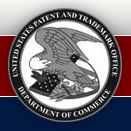Revised Procedure for Accelerated Examination of Certain U.S. Patent Applications

Petitions to Make Special filed with the U.S. Patent and Trademark Office on or after August 25, 2006, and based on manufacture, infringement, environmental quality, energy, recombinant DNA, superconductivity materials, HIV/AIDS and cancer, countering terrorism, or small entity biotechnology applications will be processed and examined using a revised procedure for accelerated examination announced on June 20, 2006. The new procedure excludes Petitions based on the applicant's health or age, and those based upon the Patent Prosecution Highway Program for US-JP patent examination reciprocity.
According to the USPTO's press release on June 26, 2006, the accelerated examination procedure is designed to give applicants quality patents in twelve mmonths or less. "In exchange for quick examination, patent examiners will receive more focused and detailed information about the invention and the closest prior art from the applicants. This increased disclosure upfront by applicants will help examiners more quickly make the correct decision about whether a claimed invention deserves a patent."
Under the new program, an application may be granted accelerated examination only when numerous conditions are met, including,
- The application must be a non-reissue utility or design application filed under 35 U.S.C. 111(a).
- The application, petition, and required fees must be filed electronically using the USPTO's electronic filing system (EFS), or EFS-Web. See future form PTO/SB/28.
- At the time of filing, the application must be complete under 37 CFR 1.51 and in condition for examination. .
- The application must contain three or fewer independent claims and twenty or fewer total claims and no multiple dependent claims.
- By filing a petition to make special under the accelerated examination program the applicant is agreeing not to separately argue the patentability of any dependent claim during any appeal in the application.
- At the time of filing, applicant must provide a statement that a prescribed preexamination search was conducted, .An amendment to the claims (including any new claim) that is not encompassed by the preexamination search or an updated accelerated examination support document (see item 9) will be treated as not fully responsive and will not be entered. A search report from a foreign patent office will not satisfy this preexamination search requirement unless the search report satisfies the requirements set forth in this notice for a preexamination search.
- At the time of filing, applicant must also provide an "accelerated examination support document with an information disclosure statement (IDS) with an identification of all the limitations in the claims that are disclosed by the reference specifying where the limitation is disclosed in the cited reference. The accelerated examination support document must also include a showing of where each limitation of the claims finds support under the first paragraph of 35 U.S.C. 112 in the written description of the specification. For each means- (or step-) plus-function claim element that invokes consideration under 35 U.S.C. 112, ] 6, it must also identify the structure, material, or acts in the specification that correspond to each means- (or step-) plus-function claim element that invokes consideration under 35 U.S.C. 112, ] 6. If the application claims the benefit of one or more applications under title 35, United States Code, the showing must also include where each limitation of the claims finds support under the first paragraph of 35 U.S.C. 112 in each such application in which such support exists.
Once a petition has been granted, prosecution will be docketed and taken up for action expeditiously (e.g., within two weeks of the granting of special status). If an Office action other than a notice of allowance or a final Office action is mailed, the Office action will set a shortened statutory period of one-month or thirty-days, whichever is longer. No extensions of this shortened statutory period under 37 CFR 1.136(a) will be permitted. Any reply or other papers must be filed electronically via EFS-Web so that the papers will be expeditiously processed and considered. If the papers are not filed electronically via EFS-Web, or the reply is not fully responsive. Failure to timely file a reply will result in abandonment of the application.
For any amendment to the claims (including any new claim) that is not encompassed by the accelerated examination support document, applicant is required to provide an updated accelerated examination support document that encompasses the amended or new claims at the time of filing the amendment. Failure to provide such updated accelerated examination support document at the time of filing the amendment will cause the amendment to be treated as not fully responsive and not to be entered.
If an application becomes involved in proceedings outside the normal examination process (e.g., a secrecy order, national security review, interference, or petitions under 37 CFR 1.181-1.183), the application will not be accelerated.during those proceedings For example, during an interference proceeding, the application will be treated in accordance with the normal interference procedures and will not be treated under the accelerated examination program.

1 Comments:
This is good piece of writing and pleasant urging commented
here, I am really enjoying by these.
Post a Comment
<< Home
© 2004-2007 William F. Heinze